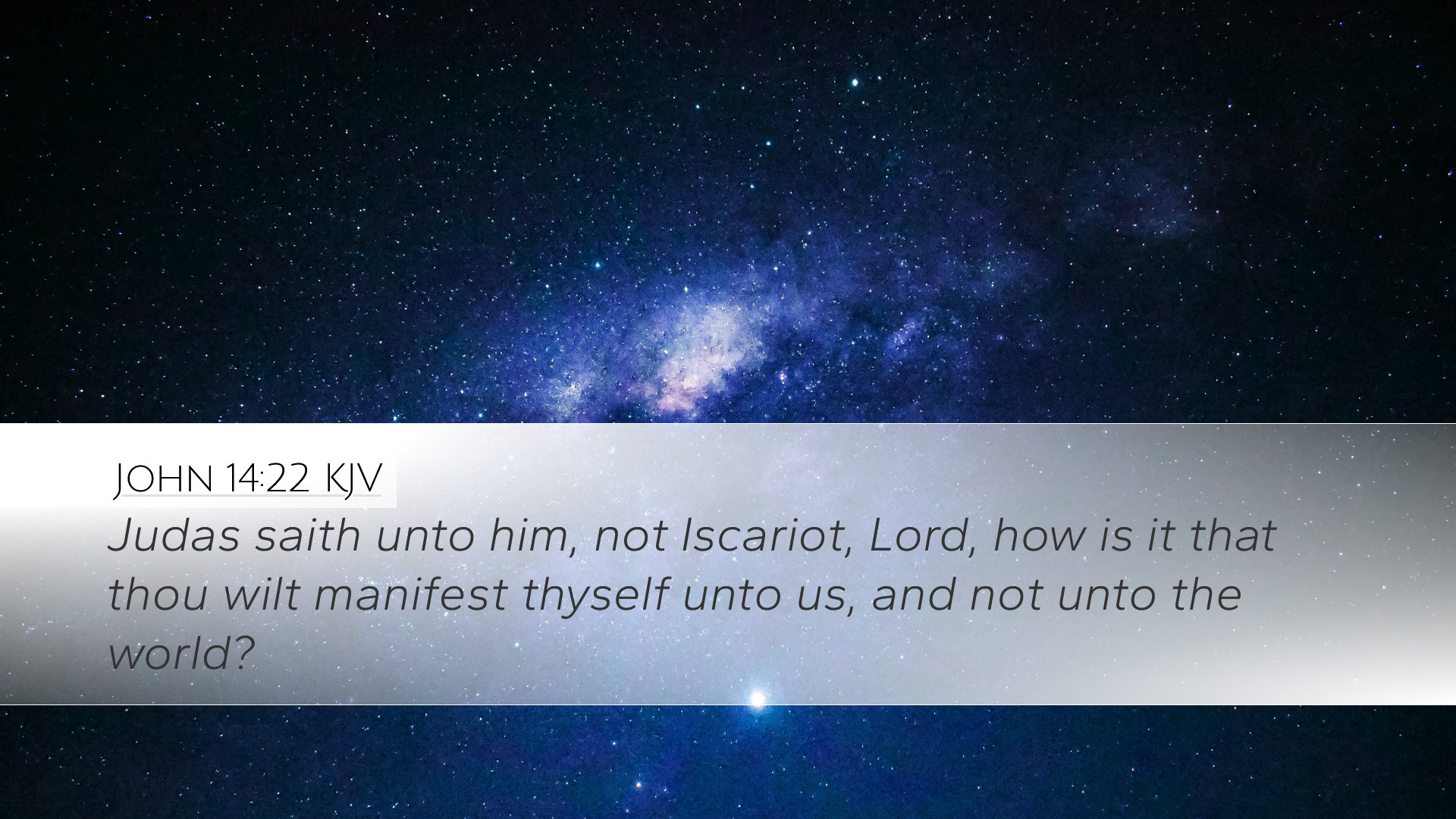Contextual Overview
This passage occurs during Jesus' farewell discourse, as he prepares his disciples for his impending departure. The chapter centers on themes of comfort, the promise of the Holy Spirit, and the intimate relationship between Christ and his followers.
Insights from Public Domain Commentaries
Matthew Henry's Commentary
Matthew Henry provides a rich exploration of the spiritual dynamics at play in this verse. He notes that Judas (not Iscariot) demonstrates a sincere desire to understand the nature of Christ's kingdom and how it differs from earthly expectations. This inquiry reflects a common confusion among the disciples regarding Christ’s true identity and mission.
Henry points out that the question of manifestation reveals a deep-seated human yearning for divine clarity. He writes, "This question shows the disciples’ yearning for closer communion with Christ, a communion that transcends the worldly perception of His kingship." It portrays the spiritual insight that they yearn for, which is indeed fulfilled through the indwelling of the Holy Spirit.
Albert Barnes' Notes on the Bible
Albert Barnes emphasizes the significance of the term "manifest" in this context. He argues that Jesus' revelation is not a physical display but rather a spiritual unveiling to His followers. He remarks, "Christ’s manifestation is to the hearts of believers, not to the outward world." This highlights the exclusive nature of Christ’s relationship with His followers, where revelation comes through faith rather than sensory experience.
Barnes also discusses the difference between the spiritual insight granted to believers and the ignorance of the world. He implies that while the world may seek signs and wonders, true knowledge of Christ comes through the inner work of the Holy Spirit in the lives of believers, who are willing to receive Him.
Adam Clarke's Commentary
Adam Clarke dives deeper into the identity of Judas, distinguishing him from Judas Iscariot, which reflects the theme of misunderstanding that permeates the passage. Clarke argues that this distinction indicates a profound honesty and earnestness in the heart of Judas (not Iscariot). He notes, "This question is emblematic of the church's ongoing struggle to grapple with the mystery of divine revelation in a world that often remains oblivious."
Clarke further amplifies the notion that Christ reveals Himself uniquely to His followers through love and obedience, alluding to the verses that follow where Jesus speaks of the conditional nature of His presence: "If anyone loves Me, he will keep My word." This emphasizes the mutual indwelling of believers and Christ, where an obedient heart is crucial to experiencing His presence.


